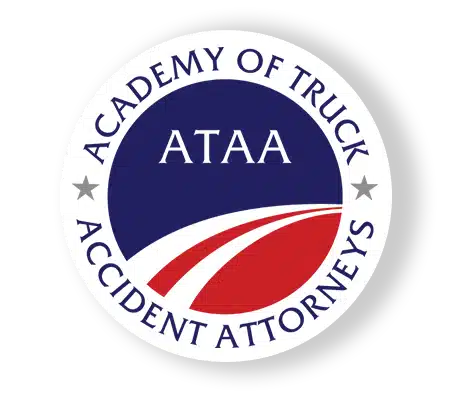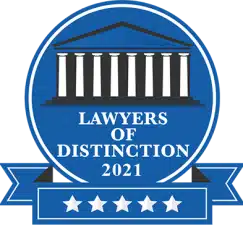No one likes to think about the possibility of experiencing severe injuries that could permanently limit their ability to function. Unfortunately, it is a risk that everyone faces, and it is estimated by some that over 375,000 Americans become totally disabled every year. From work accidents to car crashes, there are many ways for a victim to develop a permanent disability. If you or a loved one have long-lasting injuries after an accident, a knowledgeable personal injury lawyer can explain your legal options for recovery, so you and your family can regain your financial stability.
How is a Permanent Disability Defined?
Almost all types of injuries can disrupt a victim’s life, and some can even cause painful physical issues for many years. So what differentiates a permanent disability from other kinds of injuries? The diagnosis of a permanent disability mainly hinges on how it impacts your capability to maintain employment.

The legal definition of a permanent disability is a mental or physical condition caused by an accident or serious illness that negatively impacts an individual’s ability to perform the tasks necessary to remain gainfully employed. The condition causing the permanent disability may not necessarily be life-long, but it must be expected by medical professionals to last for an indefinite period without the probability of improvement.
What Injuries Are Commonly Considered Permanently Disabling?
A permanently disabling injury will leave a victim with lasting impairment to an essential aspect of their daily functioning, even after they have been treated and given time to reach their maximum medical improvement. These injuries can be physical but may also include damage to a victim’s cognitive abilities or emotional regulation. While there are a wide variety of injuries that can lead to permanent disability, some of the most common include:
- Traumatic brain injuries (TBIs)
- Amputation of a limb or loss of limb function
- Loss of a sense, such as sight or hearing
- Spinal injuries leading to paraplegia or quadriplegia
- Post-traumatic stress disorder (PTSD)
- Widespread scarring from wounds or burns
- Organ damage or failure
- Nerve damage
- Respiratory or cardiovascular disease
How Do Permanent Disabilities Occur?
Some individuals are born with permanent disabilities, but many others experience them after a preventable accident. Some potential causes of permanent disabilities are:
- Car accidents
- Truck accidents
- Motorcycle accidents
- Workplace injuries
- Slips and falls
- Dog bites
- Medical malpractice
- Birth injuries
- Defective product injuries, such as faulty medical devices
- Construction accidents
- Fires and explosions
- Violent crime and assaults
What Compensation Can You Seek if an Accident Caused Your Permanent Disability?
It is difficult to overstate the profound impact a permanent disability can have on your life. You are likely facing immense costs for your medical treatment and ongoing care. In addition to the physical and mental challenges of recovery, the financial stressors can feel frightening and overwhelming. The stakes are high in personal injury claims that involve a permanent disability because your family’s financial future may be in jeopardy due to your severe, long-lasting injuries that prevent you from working.

One of the vital responsibilities of your lawyer is carefully valuing your claim based on your current and future losses. A skilled Texas personal injury lawyer will consider economic and non-economic damages when calculating a fair settlement for your claim.
Economic Damages
Economic damages account for the monetary losses you’ve suffered from your accident, which may include:
- Current medical expenses and hospital bills.
- Lost wages
- Loss of future earning capacity due to your inability to work.
- Counseling expenses.
- Physical therapy and rehabilitation bills.
- Prescription medication expenses.
- Costs for ongoing medical care.
- In-home services or nursing expenses.
- Accessibility upgrades to your home and vehicles.
Non-Economic Damages
Unfortunately, the impact of a permanent disability goes far beyond your finances. You may find yourself experiencing a frustrating loss of independence, and your quality of life may be diminished by limited mobility, sensory deprivation, or traumatic flashbacks related to the accident. Chronic pain is also prevalent for those with permanent disabilities and can make daily life challenging. Non-economic damages attempt to place a monetary value on these non-financial losses, including:
- Pain and suffering.
- Mental anguish.
- Scarring and disfigurement.
- Loss of consortium (the deprivation of companionship, support, services, and familial relations that a spouse experiences when their loved one is severely injured).
Punitive Damages
Although it is relatively uncommon, Texas courts can award punitive damages in personal injury cases where they believe that the defendant acted with malice or gross negligence.

Punitive damages are meant to penalize or punish an offender for their egregious actions. In cases where the injuries are permanently disabling, the court may consider punitive damages if the defendant’s acts were intentional or showed a reckless disregard for the safety of others.
How Can a Personal Injury Lawyer Help if You’ve Suffered a Permanent Disability?
It can be a major blow emotionally and financially to go from being a healthy adult to suddenly being unable to work and support yourself or your family. It can be difficult to know what to do next, and it may be tempting to accept any settlement the insurance company offers to begin paying off your massive medical debts. However, it is crucial to ensure you receive the compensation you deserve. Accepting a lowball insurance settlement may put you in danger of future financial challenges and prevent you from seeking further compensation for your injuries.
To protect your legal rights for financial recovery, you should consult a trusted personal injury lawyer before signing any settlement agreement for your permanent disability. Contact our law firm today to schedule a free case evaluation and learn how we can assist you with your claim.

















